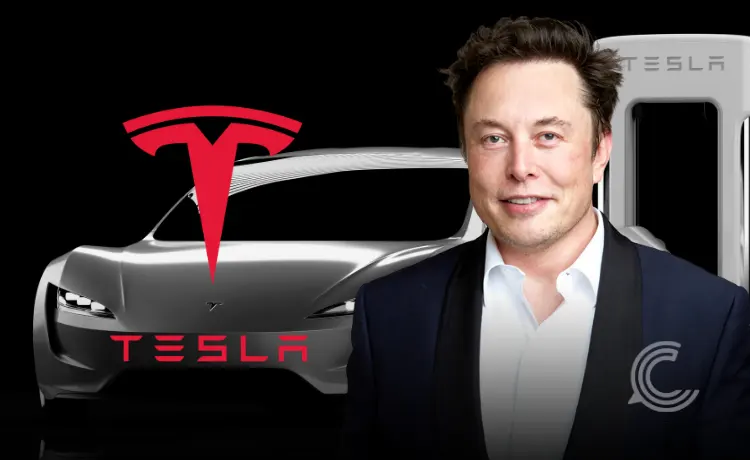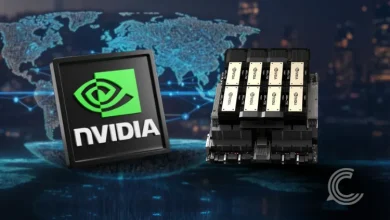Elon Musk’s $878B Pay Showdown Sparks Warning From Tesla Board

Key Points:
- Shareholders are re-voting on the 2018 performance-based stock package for Elon Musk, an award that could be worth up to $878 billion if all operational milestones are met.
- Tesla’s board has explicitly warned that the rejection of this compensation package carries a high risk of Elon Musk shifting his focus or potentially leaving the company, impacting long-term strategy.
- The re-vote is a direct response to the Delaware Chancery Court invalidating the original 2018 grant, citing a “deeply flawed” approval process and insufficient transparency to shareholders.
Tesla’s board of directors has issued a stark warning to its shareholders: approve the controversial, multi-billion dollar compensation package for CEO Elon Musk or risk his departure.
The package, which could see Musk receive up to $878 billion in company stock contingent on hitting aggressive performance goals, has become a test of corporate governance and investor loyalty ahead of the shareholder vote.
The $878 Billion Pay Package Explained
The current vote is a corporate attempt to correct a serious legal setback. In 2018, Tesla’s board granted Musk a massive, purely performance-based stock option package. It was structured across 12 tranches, with vesting contingent on the company achieving extremely ambitious market capitalization, revenue, and adjusted EBITDA milestones. Musk successfully met all these “Mars-shot milestones,” driving Tesla’s market cap from approximately $50 billion to over $600 billion.
However, a derivative lawsuit was filed by a shareholder, arguing the grant was excessive and the process was compromised. In January 2024, the Delaware Chancery Court invalidated the package.
Chancellor Kathaleen St. Jude McCormick ruled that the compensation process was “deeply flawed,” finding that the board was not sufficiently independent of Musk and that shareholders were not fully informed about the close ties between Musk and the directors who approved the pay. The court applied an “entire fairness” standard of review due to Musk’s perceived status as a “transaction-specific controlling shareholder,” a higher bar that the company failed to clear.
The current shareholder vote, therefore, aims to legally ratify the 2018 grant with full and complete disclosure of all relevant facts, a strategic legal maneuver intended to “cure” the deficiencies identified by the Delaware court and reinstate the compensation.
The Threat of Departure and the xAI Connection
In the lead-up to the vote, Tesla’s board has adopted a strong position, with Chair Robyn Denholm warning last week that Musk may quit if the deal is rejected. As reported by Investopedia, the board frames the package not merely as compensation but as a crucial tool for securing the continuity of Elon Musk’s leadership.
The stakes are magnified by the concept of “key person risk.” Analysts and the board alike acknowledge that a substantial portion of Tesla’s valuation is tied directly to Musk’s vision and drive. Ron Baron, founder of Baron Capital, a longtime Tesla backer, stated, “Without his relentless drive and uncompromising standards, there would be no Tesla.”
Furthermore, the rejection of the pay package could accelerate a strategic shift away from Tesla. Musk has openly stated his desire to increase his voting stake to 25% to gain greater control over the company’s massive artificial intelligence (AI) initiatives, particularly the development of the Optimus humanoid robot. He argued that he doesn’t feel comfortable building a “robot army” without “at least a strong influence,” as noted in a report by HR Brew.
If the package is voted down, denying him that increased stake, there is a realistic possibility that Musk could focus more on his other ventures, specifically xAI, his privately-held AI company. A separate proposal on the shareholder ballot even asks for authorization to invest in xAI. A rejection of the pay package could fuel the concern that his attention and valuable AI resources, which Tesla is banking on for its robotaxi and Optimus projects, will be diverted to his non-Tesla enterprises.
Shareholder Opposition and Dilution Concerns
The proposal faces significant resistance from powerful institutional investors, including Norway’s sovereign wealth fund (Norges Bank Investment Management) and the California Public Employees’ Retirement System (CalPERS). They have publicly announced they will vote against the Elon Musk pay package, citing concerns over its “total size,” “dilution,” and the failure to mitigate key person risk.



